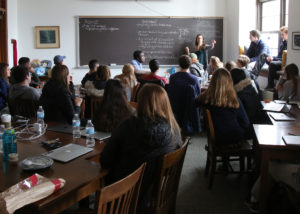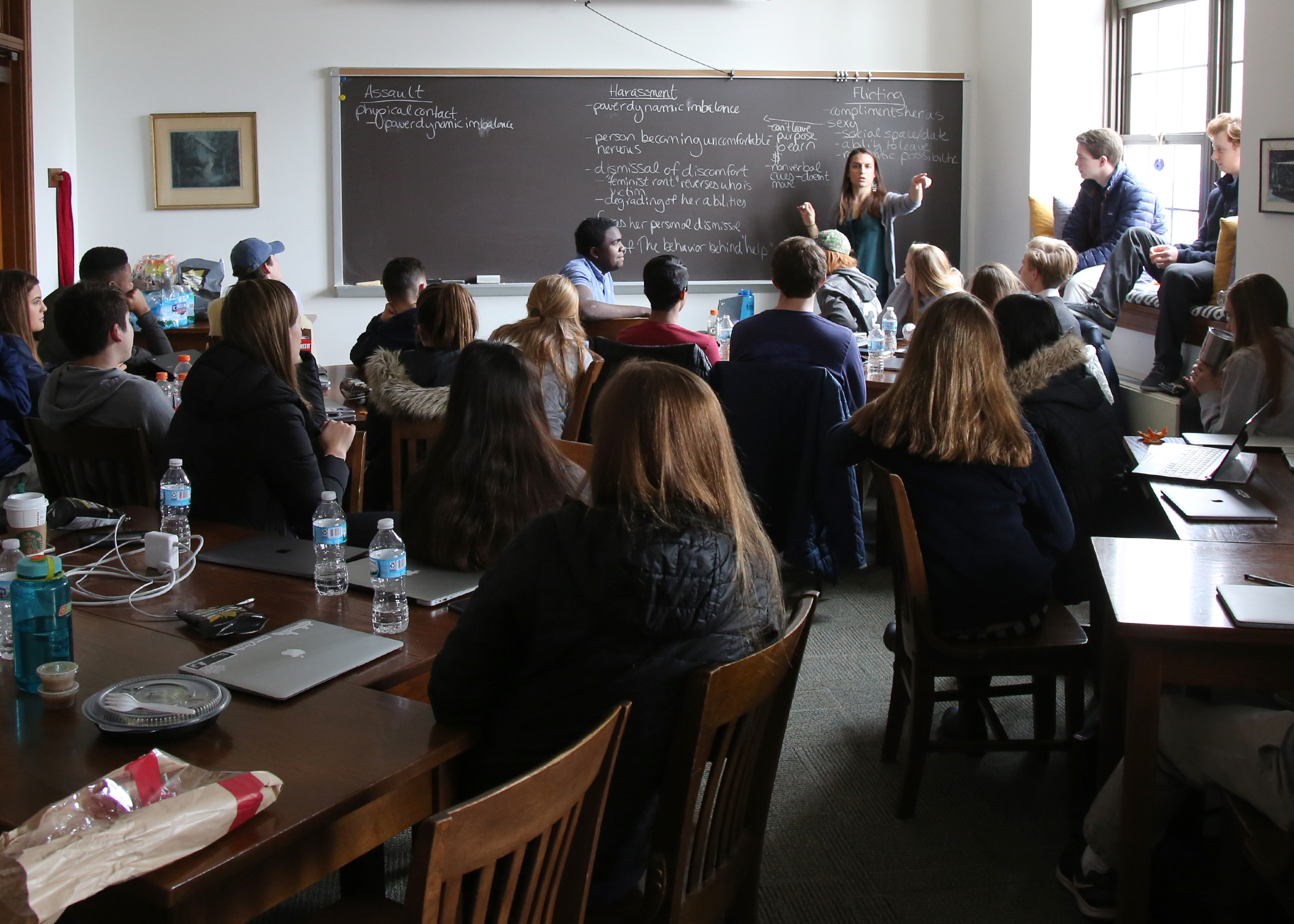By Evan WIlliams, MUN Impact Staff Writer and student from John Burroughs School
_______________________________________________________________________________________________
On the morning of December seventh, the MUN delegates of John Burroughs, along with their press team and sponsors, gathered, bright-eyed and bushy-tailed for breakfast and dialogue on sexual harassment at MUN conferences, and at large. The goal was not to solve the issue of harassment as a whole, but to determine how the delegation itself could serve in the fight to mitigate such offenses. The groups, who were split into men and women, but will be convening as a whole later this month, covered issues ranging from men’s role in an issue that largely affects women, to the meaning and importance of consent. A note was passed around the room to kick things off. It read as follows:
“That cheetah pant suit would look better on my (the delegate from Czech Republic’s) bedroom floor.”
An audible sigh of exasperation, of exhausted horror swept through the room—it sounded tired. This kind of note was all too familiar, all too common. While this article could recount the notes received by various delegates, to list those would be an act of futility—it’s not the point, it’s a symptom of a greater disease. The question which stood on the edge of each tongue in the room, ready to dive out was not “What other notes have there been?” The question was this: why do people feel empowered to send notes such as this?
When the query revealed itself in the middle of the room, the discussion seemed to take on a greater importance. Voices rose, suggesting a systemic issue. Take advertisements for example. Sex sells, right? Pretty women on billboards are a guaranteed means to sell a product—pretty women eating burgers in provocative ways—pretty women sitting in, on, and around cars—the list goes on. Why is it such a problem if companies wish to drive sales this way? It exploits the female form in a way which makes it merely an accessory, an object. Not only that, but it feeds a culture which normalizes such behavior—normalizes the subjugation of women to nothing more than eye candy.
The students in the room next took aim at the system itself, not just its branches. It’s undeniable that current events in the USA have revealed a gritty underbelly in American politics, one riddled with abuses of power. This year alone, five members of the House of Representatives, one US Senator, one candidate for a US senatorship, one former president, and the current president have been accused of sexual misconduct. There was a moment of consideration of these facts before the obvious point at hand was raised: what does it do to the psyche of young women to see high officials in government be accused of these acts? What does it do to the psyche of young women to know that the sitting president—the highest official in the land, has been accused by nineteen women of sexual misconduct in some form? Does it empower people like the mock delegate of the Czech Republic to send notes like the one above?
 Fortunately, of late there has been a forced exodus of these types of offenders from public offices, largely driven by public opinion—by active protest and dialogue. Just like they see troubling societal trends, the delegates in that room in December are able to see opportunity to effect change. They are part of the solution to injustices like heinous, indignant notes—to injustices on a grander scale. It is important to note that they are not alone. The Secretary General of the THIMUN 50th Anniversary Conference has placed the issue of harassment at the forefront, and will be working with members of the MUNITY press team to confront the problem head-on. This is a community, and its connective fabric is strong. No note will tear them apart.
Fortunately, of late there has been a forced exodus of these types of offenders from public offices, largely driven by public opinion—by active protest and dialogue. Just like they see troubling societal trends, the delegates in that room in December are able to see opportunity to effect change. They are part of the solution to injustices like heinous, indignant notes—to injustices on a grander scale. It is important to note that they are not alone. The Secretary General of the THIMUN 50th Anniversary Conference has placed the issue of harassment at the forefront, and will be working with members of the MUNITY press team to confront the problem head-on. This is a community, and its connective fabric is strong. No note will tear them apart.

